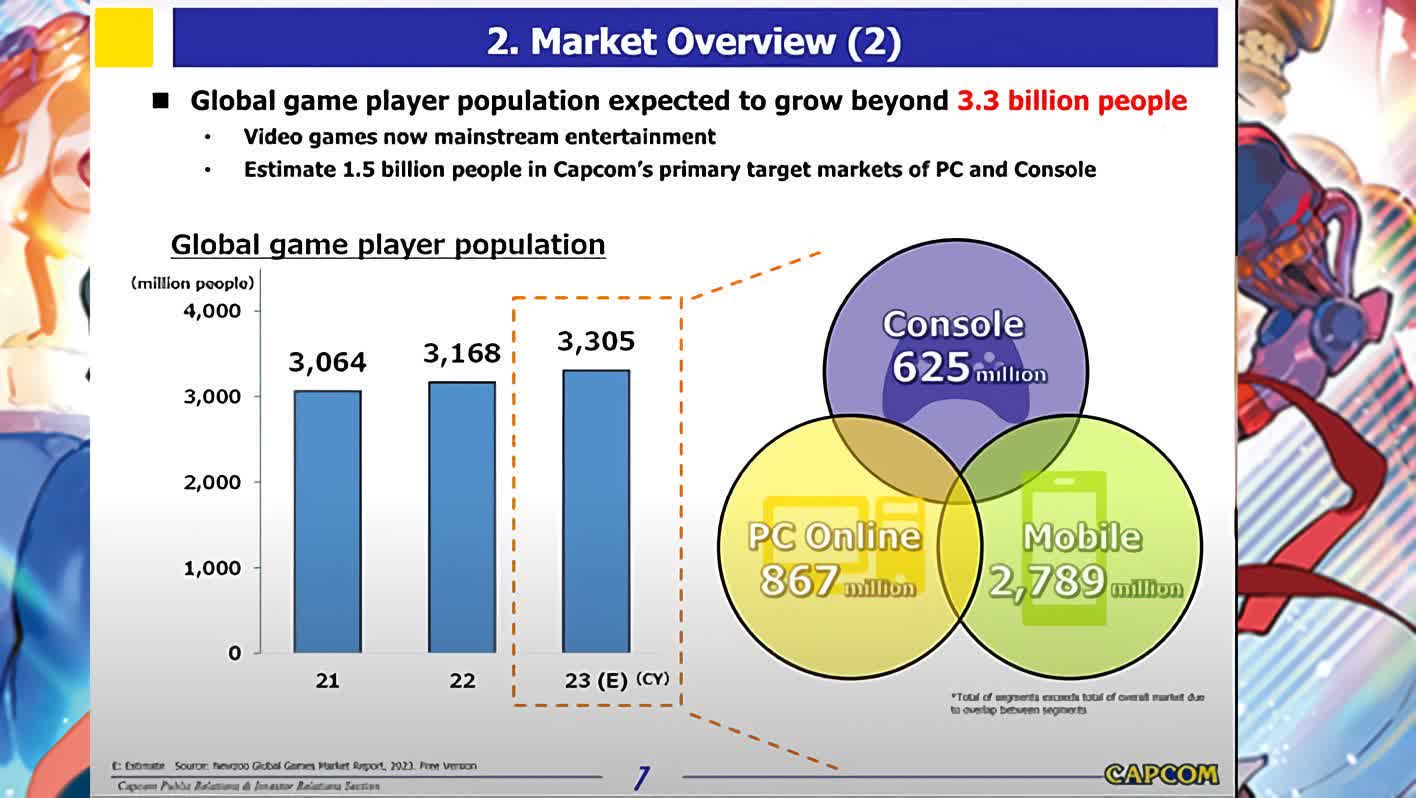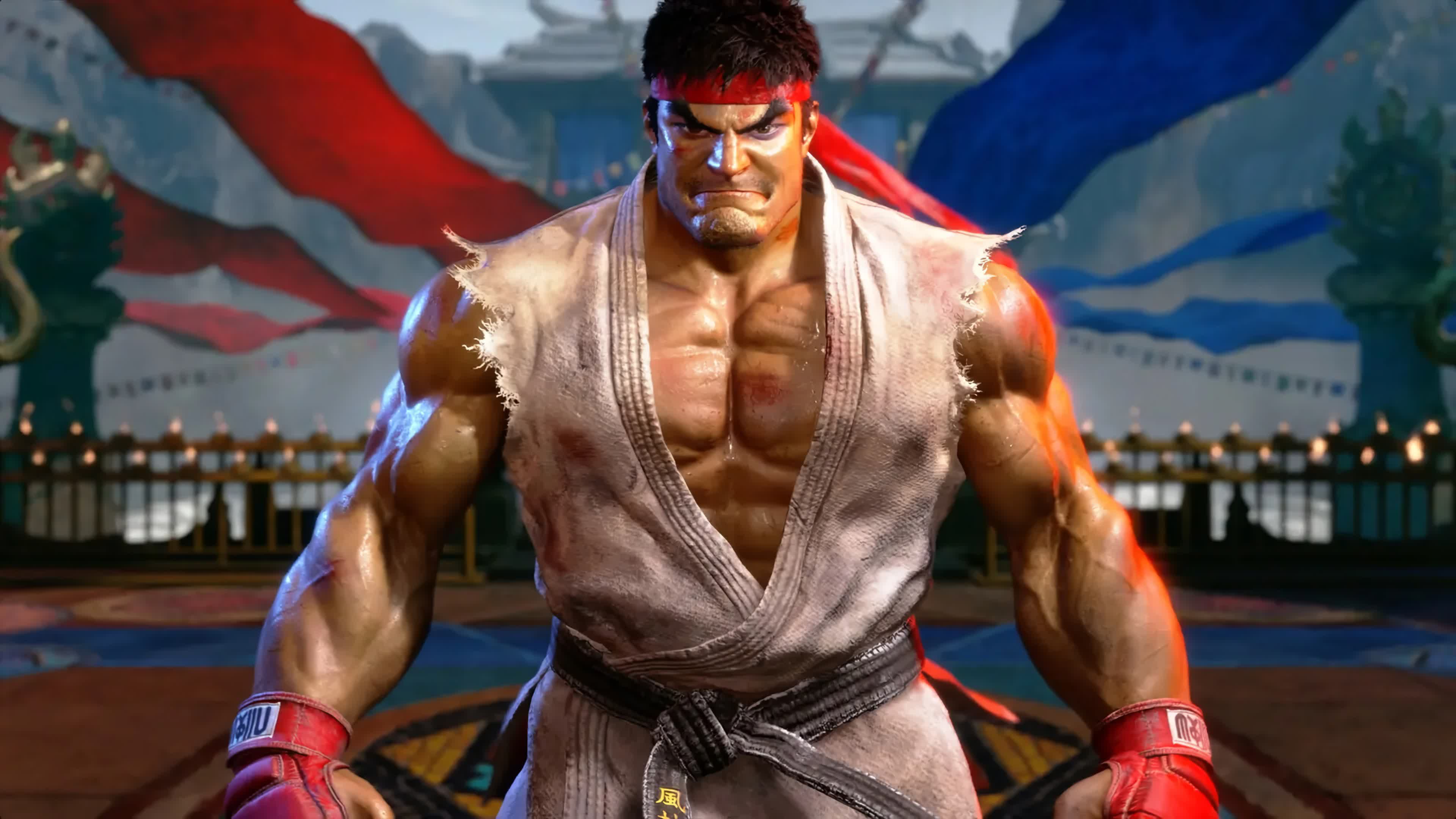In context: Capcom's latest earnings show that the software markets for PCs and consoles are a close race, with PCs edging out consoles by 14 points. During its 2023 fiscal year, 54 percent of Capcom's game sales went to PCs, while consoles accounted for 40 percent. The remainder is in mobile gaming, which ironically has doubled the gaming population of the other two markets combined.
The near equilibrium is understandable, considering many PC gamers also have consoles and vice versa. However, many more factors have contributed to the narrowing of the divide, like the increase in cross-platform gaming and the rising casual-gamer market.
The parity is also influenced by a smaller fidelity gap between consoles and comparably priced gaming computers. It's becoming harder to build a $500 gaming PC that can keep up with the Xbox Series X or PS5, meaning consoles offer more bang for the buck than ever.
Sony's relatively recent relaunching of exclusives on PC and the recent rise in handheld PC consoles also factor in keeping the PC market slightly ahead. Even if you lump PC handhelds into the console category, their software is interchangeable with desktops. There is no easy way to distinguish whether a customer bought the game for a PC, the Steam Deck, or any other recent Windows-based portable gaming device.
One distinction Capcom does make is with mobile gaming. According to its current projections, its combined population of 1.5 billion customers for PC and console falls far short of its mobile market, which is at 2.8 billion. Of course, the multipurpose functionality of phones and tablets and the convenience of on-the-go gaming puts them in an entirely different category.
However, that doesn't detract from the gradual overall growth in the gamer population that Capcom has seen over the last several years, indicating that people are getting into gaming earlier and playing for longer. Nobody can argue that games are no longer a mainstream form of entertainment.

Impressive, albeit expensive, gaming rigs will always beat home consoles, but the bang for the buck factor is not in the PC's favor anymore, so we might see a time when casual gamers push the console market ahead. It will be fascinating to see how the upcoming launch of the PS5 Pro influences the market – if at all.
The PS5 Pro is an interesting proposition. Sony Interactive Entertainment CEO Hideaki Nishino implied that the PS5 Pro will attract 20 percent of current PS5 owners as it did when it released the PS4 Pro. I'm not convinced for one big reason – price.
The PlayStation 4 launched at $400 in 2013. Sony released the PS4 Pro three years later for the same price while slashing the standard SKU to $300. Meanwhile, the PlayStation 5 launched in 2020 for $500. After a four-year gap, the Pro version ships in just days for $700. The standard SKU will remain at $500 with no discount, which is against the historical tradition of mid-cycle refreshes.
I could be wrong, but I can't see how Sony expects 20 percent of PS5 owners to rebuy. It's just not an apples-to-apples comparison to the PS4 Pro's sales. Even if it does reach Sony's expectations, it will not likely affect the balance between PC and console software sales for Capcom or any other publisher.
